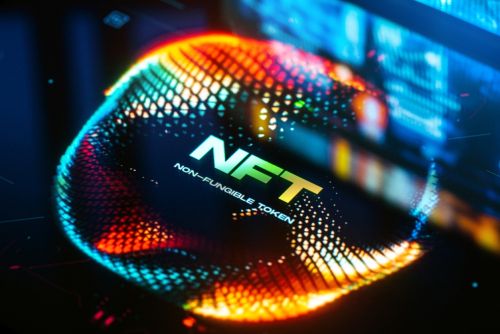When new technology emerges, sophisticated scams associated with it often follow. In the past year, nonfungible tokens (NFTs) have risen in popularity — and those who own them should be aware of the various phishing scams. Unfortunately, with the NFT boom, scammers have found various new ways to steal NFTs and con creators out of their digital assets. Not only can this cause a significant financial loss, but it can also put your personal identifying information at risk.
What is an NFT?
NFTs are virtual products that exist on the blockchain, so that ownership can be verified and tracked. No two digital files are the same, and they cannot be duplicated. When NFTs are purchased, it is the token that is bought rather than the actual digital asset. Each NFT is minted with a smart contract code that becomes part of the blockchain — once the code is written, it cannot be edited.
Not only can NFTs be created for tangible assets, but they can also be minted for those that are intangible. Since they are not interchangeable, they can only be owned by one person at a time. Each NFT comes with its own set of contractual rules concerning ownership rights. Generally, the creator’s intellectual property rights remain with them unless they have agreed otherwise upon the sale of the NFT.
Likened to fine art that is tangible, NFTs are scarce and authentic. They are especially popular among celebrities, millennials, collectors, investors, and many others worldwide.
What is an NFT Phishing Scam?
NFT phishing scams typically involve fake advertisements through phony websites and popups that ask for the user’s credentials, such as a security phrase or private wallet key. Once the scammer is in possession of the wallet key, they can hack into the wallet and deplete the NFT collection and the crypto funds.
One NFT scam that recently made headlines involved actor and producer Seth Green’s expansive NFT collection. Green had plans to use characters in his NFT collection for his upcoming animated series. However, his plans were averted when the collection was purloined by a scammer in a phishing scheme days before the main character, “Bored Ape,” was set to make his debut. While one of the NFTs in Green’s collection was flipped for $42,000, “Bored Ape” was sold by the scammer for over $200,000.
Although Green later reclaimed the Bored Ape by spending 165 Ether — the equivalent of $260,000, a major issue highlighted by the theft concerns NFT intellectual property rights. Because it was unclear as to whether he would continue to own the licensing rights, the pilfering of Green’s NFT left him in a legal gray area.
How Can a Trademark Protect NFTs?
As the NFT industry continues to rise, brands are increasingly seeking to protect their NFTs with registered trademarks. Trademark registration of an NFT will not necessarily protect it from a phishing scam, but it will give the creator the exclusive rights to the token name, symbol, phrase, or design that identifies the goods or services. It’s important not to confuse ownership of the token with the content of the NFT — which is separate and distinct. While the person who purchased the NFT holds ownership rights to the token, the intellectual property ownership rights remain with the creator of the work.
It's critical to distinguish trademark and copyright when it comes to NFTs. While a copyright can safeguard an original piece of artwork, a trademark can protect the name, slogan, logo, or design associated with a series of NFTs. A trademark can ensure your brand is protected, the NFTs stand out in the competitive market, and you have protection for that mark. Just because an NFT creator owns a trademark does not mean they also have copyright rights, and vice versa. In addition, even though someone might purchase an NFT on the blockchain, it doesn’t mean they have acquired the underlying intellectual property rights.
Contact a Knowledgeable Trademark Attorney for NFT Intellectual Property Matters
If you’re creating a series of NFTs, it is critical to protect your intellectual property rights by registering the trademark that represents your brand. However, trademark law is complex and It’s best to have an experienced trademark attorney on your side with deep knowledge of the USPTO’s requirements who can guide you through the registration and application process. Located in Ann Arbor, Michigan, the Trademark Lawyer Law Firm, PLLC works with entrepreneurs and business owners in a variety of industries nationwide to help ensure the trademark associated with their NFTs are safeguarded. Contact us today to schedule a free 15-minute consultation to learn how we can help.





